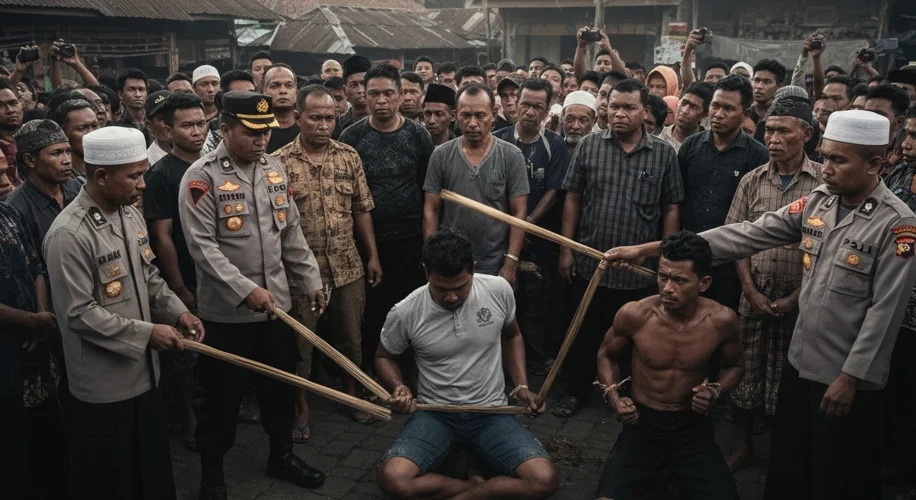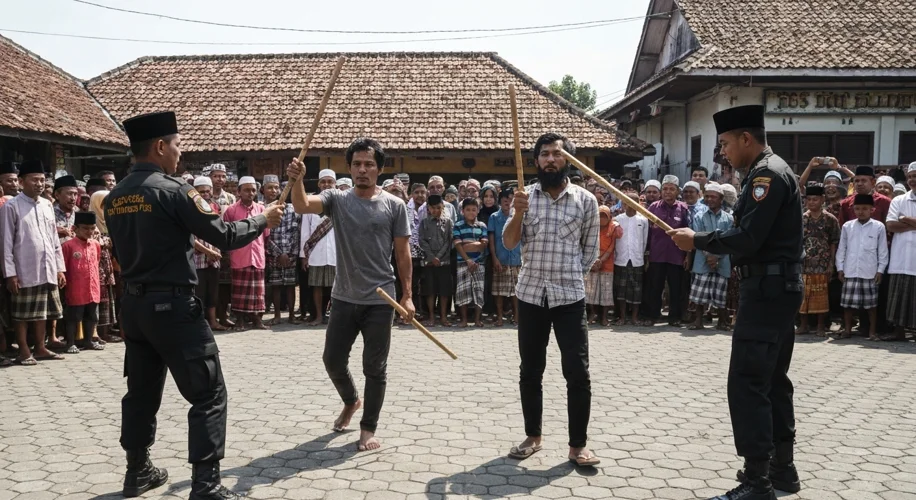In the heart of Indonesia, on a day that etched itself into the collective memory of the faithful, two men found themselves at the center of a stark public spectacle. Not for any grand political offense or heinous crime, but for the simple, human act of embracing and kissing each other. The scene, unfolding under the unforgiving glare of the sun, was one of a profound cultural and legal chasm, highlighting how deeply societal norms can diverge.
The punishments, meted out in a public square, were as swift as they were severe: caning. This form of corporal punishment, deeply rooted in the region’s interpretation of Sharia law, stands in stark contrast to many Western notions of personal liberty and affection. The individuals, their faces etched with a mixture of pain and perhaps shame, represented a clash between deeply held religious convictions and the universal expression of human intimacy.
Indonesia, a vast archipelago nation, is not monolithic in its application of law or custom. While the national legal framework exists, certain regions, particularly Aceh province, implement Sharia law more stringently. It is within this context that public displays of affection, especially between men, are deemed offenses against religious and moral codes. The men, whose identities were not broadly publicized, were reportedly found guilty of ‘khalwat,’ or close proximity between unmarried individuals of opposite sexes, or in this case, same-sex intimacy which is also criminalized under Aceh’s interpretation of Sharia law.

The event serves as a potent reminder of the diverse legal and cultural landscapes that exist across the globe. What might be considered a harmless, even cherished, expression of love and connection in one part of the world can be perceived as a grave transgression in another. This disparity raises complex questions about universal human rights, religious freedom, and the varying interpretations of morality that shape different societies.
The practice of public caning, while abhorrent to many, is seen by its proponents in Aceh as a necessary deterrent and a means of enforcing moral order according to their religious beliefs. For the men subjected to the punishment, it was a deeply personal and physically painful experience, a consequence of actions that, in a different societal framework, might have passed without a second glance. The event underscores the critical need for understanding and dialogue across cultural divides, even as it highlights the sometimes brutal realities of deeply entrenched legal and religious traditions. It is a narrative woven from threads of faith, law, and the enduring, often challenging, spectrum of human behavior.

